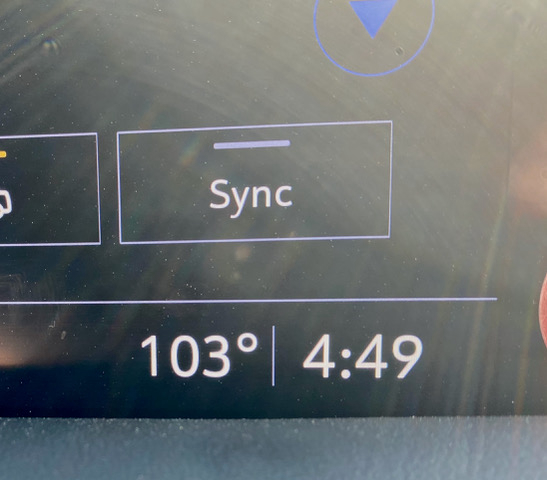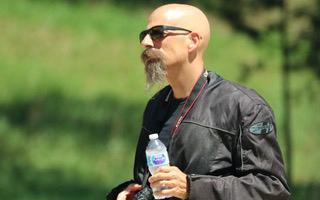Two thousand, six hundred forty-eight miles ago, I was prepping for an RV trip to South Dakota. With that nine-day journey in the rearview mirror, it’s time to share some of the lessons learned.
First, if you’re the kind who likes to be prepared, you’ll likely find yourself unpacking some things you never used.
If you’re like me, that’s probably a good thing.
Most of my unused items weren’t the patently obvious things you need for summertime travel like sunscreen and extra hats (although I had brought of both). They were things designed for dealing with things we’d prefer not happen. As I unpacked them, I was relieved they’d ridden to-and-from South Dakota without ever being unpacked. No one wants to open the second first aid kit, much less the tourniquet and blow-out kit I bring whenever there’s recreational shooting on the agenda.
Other than a tiny cut after getting a bit too-close to a riflescope, I made it home unscathed.
My RV, unfortunately, also appears to have gotten a little scrape. Seems someone got a bit too-close while I was parked somewhere during my travel, leaving a couple of parallel scratches about four inches long and the width of a truck bumper.
It’s headed in for its annual checkup later this morning. That’s when I’ll have my dealer’s service department look for what appears to be a small leak in a drain line. It seems somewhere between the shower pan and the outlet water is getting out into the interior. Ordinarily, I’d be flipping out about it, but one thing I have learned after spending several nights in campgrounds is that RVs, no matter their size, are like houses in that there’s always something that needs attention.
As I was hauling unworn clothes back into the closet, I realized I had once again fallen for the “you have the room, so bring it along” lie. If you’re traveling in an RV and staying in full-service campgrounds, you’re better off to bringing a roll of quarters and laundry detergent than four nice shirts, two pairs of dress pants, and dress shoes “just in case.” From what I saw on this trip, long pants and sneakers instead of shorts and flip-flops constitute dressing up.


Another lesson was reaffirmed. In 100-plus degree heat it is far better to protect yourself from the sun, perspire and stay hydrated than it is to deal with a serious sunburn and dehydration. Watching a miserable mom try to deal with a couple of sunburned kids was a harsh reminder to keep rubbing on that sunscreen.
Regarding dealing with the heat…it is virtually impossible to over-hydrate yourself in triple-digit temperatures and extremely low humidities. It is entirely possible to drink so much water you flush the electrolytes from your system. Staying hydrated is important, but so is replacing the electrolytes. Water will keep you going in the daylight, but replenishing those electrolytes will help prevent leg cramps keeping you up at night.
One thing it seems many campers forget is that if you’re not using rechargeable lights and/or batteries, you will probably need spares. I routinely carry a small battery box that contains the most commonly used batteries, along with a couple of the wafer-styles that run everything from lasers on handguns to key fobs for cars (or campers). About the third time someone asked me if I might happen to have a 2032 battery (I had several), I realized that many people seem to believe batteries never die.
Batteries always die; most usually when you need them most.
If you use regular batteries, bring spares. If you go rechargeable, don’t forget the chargers.
There’s nothing as disconcerting as realizing your camera battery’s dying, then realizing you forgot your charger -and spare batteries. You won’t always be able to find a replacement for either, so make certain you’ve onboarded your spares and chargers before your departure.
Tiny tips from a big trip.
But I learn something new every time I take to the open road. Fortunately, experienced campers seldom mind your asking questions.
After all, one reminded me last week, everyone was new to camping at some point.
— Jim Shepherd